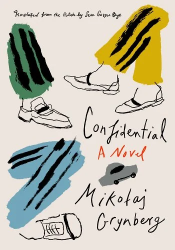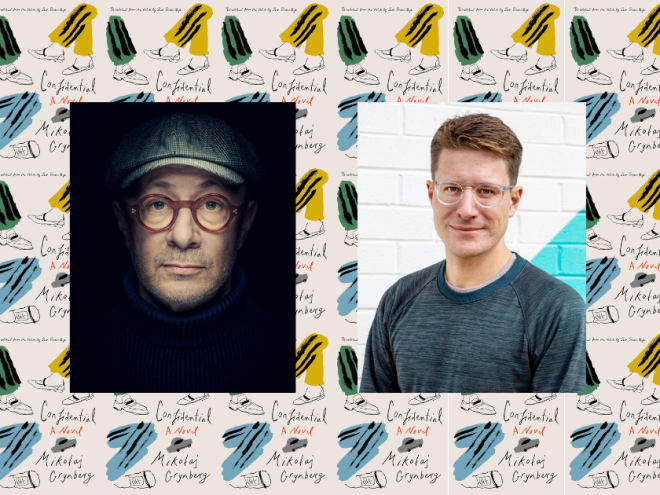
Gatehouse Auschwitz II (Birkenau), 2007
Procession
Pilgrimage isn’t the right word. Journey doesn’t work either. Maybe funeral procession? That sort of fits and sort of doesn’t, because a procession is full of people and I don’t see anyone else around.
This procession of mine set off as soon as I asked my mom about her parents. I was a nosy little girl, but until that moment I could ask her about anything. On that day, when I broached the subject of my grandparents for the first time, my march began. That was the day I started to break down. My mind and my heart were breaking down, though I didn’t know it yet.
I quickly accepted the conditions of silence. Maybe once or twice I tried asking again, but I didn’t learn anything new. Instead of four grandparents I had two. My other two remained concealed beneath a thick blanket of wordlessness. Not a sound escaped from under it. I stayed silent too— until my two living grandparents died. Once I had no one of that generation left, I went on the attack. I asked my dad, I asked my mom — nothing. I begged, I threatened — nothing. I secretly rifled through the cabinets in their room — nothing. Then something strange happened to me. The family secret isolated me, condemned me to loneliness.
I understood I had to look somewhere else. I grew closer to databases and government archives than I was to my family home. It was by combing through them that I found my grandparents. Now I knew where they lived, what their names were, and how many children they had. I knew that in July 1942 they were arrested by the French police and taken, along with over ten thousand Parisian Jews, to the Vélodrome d’Hiver. The French state railroad transported them right to the doors of the gas chambers.
Yet beyond that I couldn’t understand why my parents had put so much energy into keeping this information from me. Why in all the Jewish families I knew the dead lived on in the memories of their loved ones, but my grandparents had been exiled to the archives. Forbidden from reminding anyone of their existence.
I kept on the lookout for an excuse to talk, but I knew that I had to seize a moment when they wouldn’t be able to ignore me or get away from me.
Then the ideal opportunity came along — my mother’s uncle’s birthday. My great-uncle remembers his sister, my grandmother, very well. They were very close siblings and he practically doted on all three of his nieces and nephews.
On that day, when I broached the subject of my grandparents for the first time, my march began.
I waited through the aperitif, I waited through the appetizers, I even waited through the main course. Between the salad and the cheese course, I attacked. I tapped my knife on a wine glass. Everyone went quiet. They all probably thought I’d finally found a future husband. I launched my offensive and I have no regrets.
What about Grandpa? I ask. Silence. I know I’ve only got a moment, because before long my deep-laid plan will get that muffling blanket thrown over it and I won’t be able to lift even one corner. I stand and shout that they have no right to cut me out of knowing about my grandfather. And who answers me? My mother, who gave me nothing but silence on this subject for thirty-five years. She screams that she’s ashamed of me, that I’ve poisoned so much of her life, that she can’t go on with this. She shouts that my grandfather was a coward, because if he’d listened to my great-uncle sitting here, he’d probably have survived. He and his family. But my grandfather knew best and didn’t believe that he had to hide and wait it out. My coward grandfather believed in his French compatriots, who sent him and his whole family straight to the ovens in Poland. Almost his whole family, because she— my mother — was lucky to be staying with her aunt and uncle at the time. That’s the kind of hero he was. He didn’t want to listen to smarter people, and when the time came, he didn’t even try to escape.
Now I barely speak to my mother. A little to my dad, but he doesn’t know how to fit in between us. My great-uncle is happy to be in touch, except I can’t listen to his words of hatred and disdain for my grandfather.
My procession is still on its way. I’ve come from Paris by train, because that’s how my grandfather and his family were brought here. I’m going to take the train all the way to Auschwitz.
Though mourners’ marches end at the cemetery, mine is going to continue on, just in the opposite direction. I’m going to bring honor back to my grandfather. In spite of my whole family. And that’s why I need you. You’re the child of survivors, a psychologist and a photographer — no one will understand me better. I want you to make a portrait of me, but one that will let me connect with my grandfather. I’ve found documents in the camp archive. The Germans were methodical, doing their bookkeeping untroubled by guilt. My grandfather was murdered on September 20 at 6:05 p.m. They wrote that he died of a heart attack — the same as everyone else.
On September 20 let’s meet at your studio and at 6:05 exactly you’ll push the shutter release.
*
Funeral procession isn’t such a bad phrase after all. All this time my family has been walking in it together, in silence.
Copyright © 2017 by Mikołaj Grynberg English language translation © 2021 by Sean Gasper Bye. This excerpt originally appeared in I’d Like to Say Sorry, but There’s No One to Say Sorry To, published by The New Press. Reprinted here with permission.
Mikolaj Grynberg is a photographer, psychologist, and writer of fiction and nonfiction. He is the author of Survivors of the 20th Century, I Accuse Auschwitz, and The Book of Exodus as well as I’d Like to Say Sorry, but There’s No One to Say Sorry To and Confidential, translated by Sean Gasper Bye (The New Press). He lives in Poland.



